‘The moment we allow our hearts to go numb to the deaths of any children is the moment we shut down our humanity’
This article originally appeared at Baptist News Global on October 17, 2023.
As someone whose ancestors immigrated to the United States from Lebanon, the faces of children suffering in the war in Israel remind me of my own children.
The limp body of a 5-year-old girl being carried through the rubble, and the bare, bloody shoulders of a 13-year-old boy lying on a hospital stretcher next to his dad are the haunting images of children who have the same eyes, skin and hair my children have. In their families, I see my own.
Conflicts half a world away become much more tangible to us when we recognize our neighbors in ourselves, or ourselves in our neighbors. And while we often talk about connecting with others in our common wonders or wounds, the unspeakable atrocities Hamas committed against our Israeli neighbors and the retributive violence from Israel’s retaliation that will descend upon our innocent Palestinian neighbors suggest that perhaps this is a time that necessitates recognizing something else we have in common with each of them — our common celebration of violent retribution.
‘We’re in a religious war’
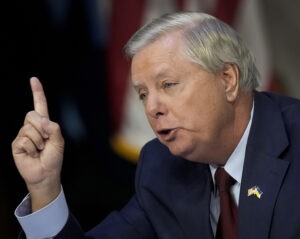
Sen. Lindsey Graham (R-S.C.) (Photo by Drew Angerer/Getty Images)
“We’re in a religious war here. I am with Israel,” Sen. Lindsey Graham declared. “Do whatever the hell you have to do to defend yourself. Level the place.”
The sentiment of leveling Gaza is one I’ve seen over and over on social media. One person went so far as to suggest Israel turn Gaza into a sandbox.
When asked how the current conflict between Israel and Hamas is reflective of the past 5,000 years of history in Jerusalem, Hussein Rashid said on MSNBC: “Trying to frame this as a religious conflict keeps us from moving beyond what is at stake right now, which is that there is a campaign of people killing people. And it’s under the veneer of religion, and for some people this is a very important religious issue. But what do you do with Palestinian Christians, with Palestinian atheists, with secular Jews who are not necessarily in this from a religious perspective?”
He continued, “There has to be a solution to peace. That solution to peace has to come by not overdetermining the role of religion, while taking the role of religion seriously.”
Mark Wingfield recognized this clashing of priorities in a recent piece for BNG, noting that “one of the prime motivators for the current war” may be “religious fervor (colliding) with political ambition.”
The role of religion
Founded as a paramilitary wing of the Muslim Brotherhood, Hamas historically has been both a political and a religious organization. These two priorities are reflected in their charter, which defines their goals as destroying the Jewish state and expanding an Islamic state throughout all Palestine.
“The land of Palestine is an Islamic Waqf (holy possession) consecrated for future Moslem generations until Judgment Day. No one can renounce it or any part, or abandon it or any part of it,” Article 11 of their charter states.
Linking Palestine’s rich Islamic past to prophecies of the Judgment Day found in Islamic sacred writings makes it virtually impossible for many followers of Islam to compromise with their Jewish neighbors.
Israel shares a similar combination of religious and political motivations. Ryan Burge explains: “Judaism is both an ethnic identity and a religious tradition. People who are ethnically Jewish trace their ancestry back to the Israelites from the First Testament. … Then there is Judaism as a religion. These are people who attend religious gatherings at synagogue. … Secular Judaism is understood to be a group of people who can trace their ethnicity back to Jews from the Bible, but they do not practice the religion of Judaism in any meaningful way.”
Thus, while many Jewish people may simply care about politics, others treasure the rich heritage of holy sites and promises of apocalyptic restoration centered in Jerusalem from Judaism’s sacred writings.
Islamic communities and Jewish communities both share a political and religious history in the same land with an apocalyptic vision for a future total reign over the other.
The role of civil religion
When religion and politics converge in a society, an unspoken civil religion begins to develop that includes a nation’s sacred texts, holidays, narratives about their past and visions for their future.





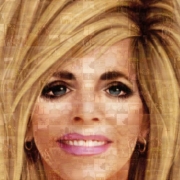
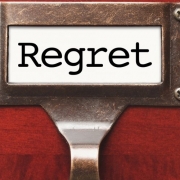
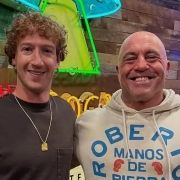
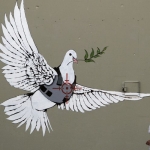

Leave a Reply
Want to join the discussion?Feel free to contribute!